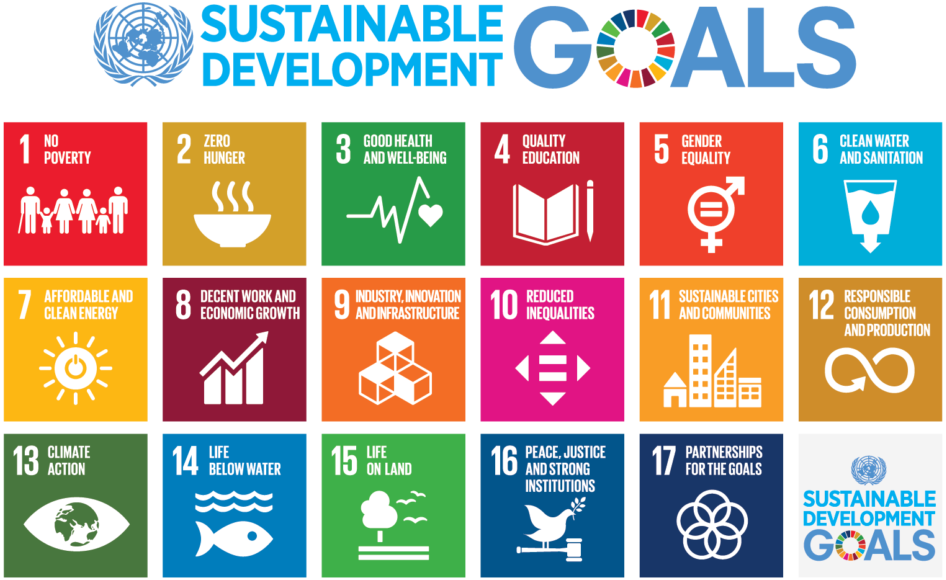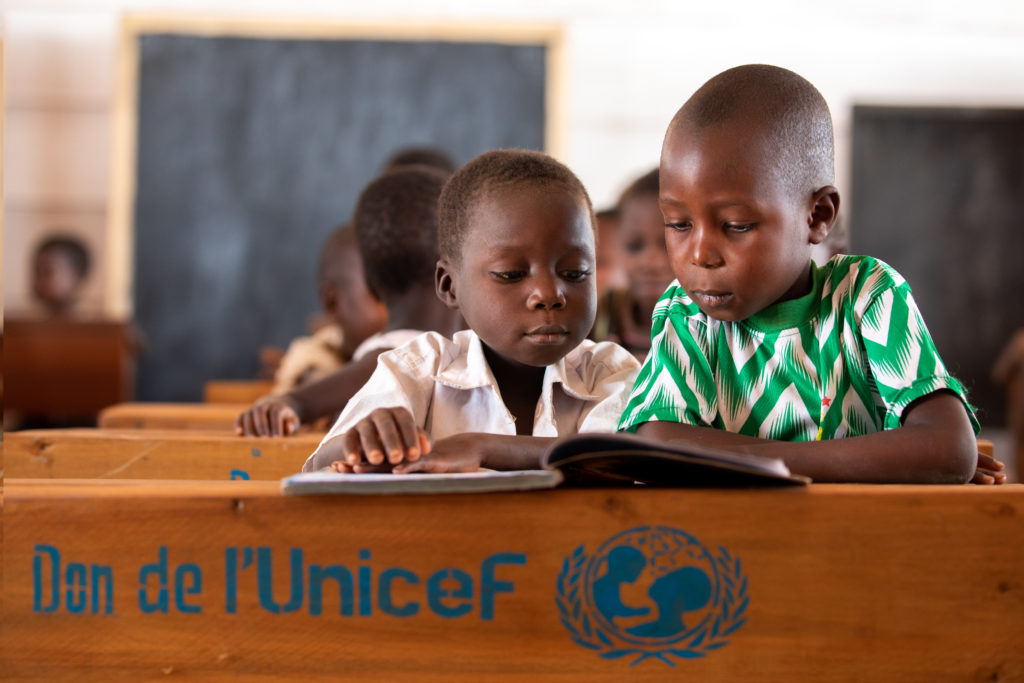The world is at a pivotal moment in its efforts to eradicate extreme poverty and achieve a better quality of life for everyone.
THE SUSTAINABLE DEVELOPMENT GOALS
In 2015, the UN brought together national governments, civil society organizations, the private sector, religious leaders, and citizens from around the world to create a set of 17 goals to address shared challenges to international development. The Sustainable Development Goals (SDGs) address a comprehensive and interconnected suite of issues, including promoting good governance; ending preventable diseases like HIV/AIDS and malaria; preventing maternal deaths; improving access to education, food, and sanitation; mitigating and adapting to climate change; and ensuring gender equality.
Unfortunately, the common challenges we face are growing. After decades of significant progress on poverty reduction (the share of the world’s population living in extreme poverty fell from more than one-third 30 years ago to 9 percent in 2019) the COVID-19 pandemic pushed over 120 million people back into poverty in 2020 and extreme poverty increased for the first time in 25 years.
With less than ten years until the 2030 deadline, UN Secretary-General António Guterres declared a Decade of Action to spur increased attention to the goals. While the pandemic has slowed progress to achievement of the SDGs, there is hope that many of the programs being put into place to end the pandemic will strengthen the pathways to end extreme poverty.

U.S. LEADERSHIP; NOT U.S. LAW
While the Global Goals reflect a consensus among all UN Member States, they carry a strong U.S. imprint. During negotiations, the U.S. government engaged robustly in Member State consultations, and U.S. grassroots and civil society organizations worked to feed their own ideas into the process. The resulting SDGs broadly reflect many U.S. foreign policy and development priorities that have been championed by both Democrats and Republicans over the years. These include alleviating extreme poverty and hunger, ensuring access to safe drinking water and education, combating infectious disease, empowering women and girls, and promoting employment and economic growth. Moreover, by seeking to promote the rule of law, fight human trafficking, increase government transparency, address corruption, and support universal human rights, the goals also focus much-needed attention on governance-related issues, another longstanding priority of U.S. foreign assistance programs.
PARTNERING WITH BUSINESS, CIVIL SOCIETY, AND LOCAL GOVERNMENT TO END POVERTY
The business community was deeply involved in the negotiations around the goals and has come out strongly in support of them, including providing benchmarks on their contributions to achievement of the goals. Through the UN Global Compact, more than 10,000 businesses worldwide have made pledges to help achieve the SDGs. In the U.S. alone, almost 600 companies have joined this initiative, including General Electric, Nike, Cisco Systems, and General Motors. Non-governmental organizations have also made pledges, including Catholic Relief Services and the International Rescue Committee. The Wall Street Journal now includes a metric on alignment with the SDGs as part of the annual Management Top 250 Rankings for U.S. companies.
The goals have also inspired state and local governments to undertake their own efforts to address poverty and other environmental, public health, and social challenges. For example, New York City launched a movement to encourage cities to report on their local SDG efforts, garnering support from cities from around the world for a Voluntary Local Review that would demonstrate their capacities to achieve the goals and improve the lives of their citizens. Hawaii demonstrated how to ground the SDG framework in locally sensitive measures and is now a model for islands around the world. Pittsburgh has coordinated their effort at achieving the goals with city officials, universities, and foundations, and Los Angeles developed a shareable data tool to track progress locally that is being used in other cities.
The business community was deeply immersed in the negotiations around the goals and has come out strongly in support of them. Through the UN Global Compact, more than 10,000 businesses worldwide have made pledges to help achieve the SDGs. In the U.S. alone, almost 600 companies have joined this initiative, including General Electric, Nike, Cisco Systems, and General Motors.
In addition, more than 4,000 non-governmental organizations, cities, and other organizations that have made pledges, including the city of Milwaukee, Catholic Relief Services and the International Rescue Committee.
HURDLES TO ENDING EXTREME POVERTY AND THE WAY FORWARD
Prior to 2020, humanitarian crises, both manmade and natural, had halted some of the momentum towards achieving the SDGs. For example, with regards to Goal 2, which calls for ending hunger, improving nutrition, and promoting sustainable agriculture, a 2018 UN progress report found that following a prolonged decline, the number of undernourished people worldwide actually increased from 777 million in 2015 to more than 815 million in 2016, due largely to armed conflicts in Yemen, South Sudan, Nigeria, and other countries, as well as droughts and natural disasters connected to climate change. COVID-19 is exacerbating this problem: the World Food Programme estimates that 271 million people in countries where it operates are acutely food insecure or directly at risk of becoming so due to the aggravating effects of the COVID-19 crisis.
Given the voluntary nature of the SDGs, gaps in implementation are to be expected. Indeed, the Global Goals do not impose any legally-binding obligations on Member States. Instead, they provide the international community with a shared framework for achieving progress on a full range of measures related to the well-being of humanity and the planet. The fact that 193 Member States were even able to agree on such a common set of objectives—many of which carry more than a hint of U.S. influence—at all, is itself an achievement. Moving forward, it will be incumbent upon the U.S. to remain engaged and use its position of global leadership to help ensure that these significant but achievable standards become more than mere words.
